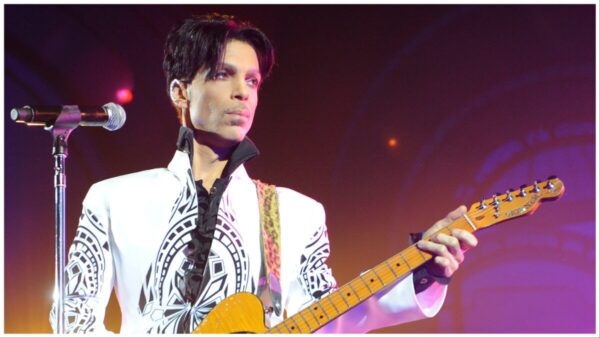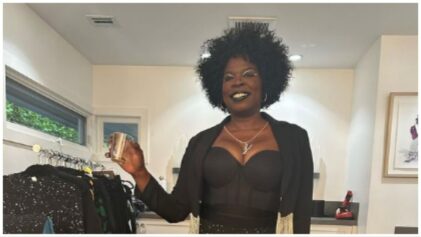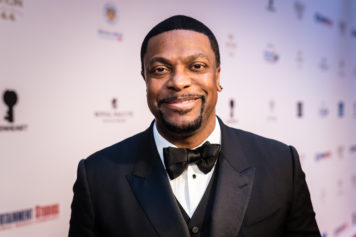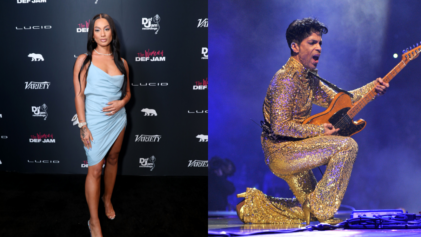For nine years Hucky Austin dedicated himself as security personnel for the renowned singer and producer Prince between 1983 to 1991. However, during one show in the Deep South, it was Prince who emerged as the defender, standing up to protect Austin’s honor.

Austin took to the PRINCENEWS Facebook account, on the eve of Martin Luther King Jr. Day, to give an account of the time that the Purple One was scheduled to perform in Birmingham, Alabama, and all of the racist micro-aggressions and bigoted behavior targeting him as he tried to execute the duties of his job.
It started with the head of security at the venue, a Mr. Jones, questioning why he had to inspect Prince’s dressing room before he entered and ended with a police officer humiliating him, using his badge to demean the bodyguard as he attempted to handle some business for his boss.
“If you believe you need to conduct your little inspection, go on then,” Austin remembered the man, who he described as looking like an older Dom DeLuise, said to him. “But remember one thing, boy, you’re in the South now. And I’m not one to take lightly to strangers strutting around like they’re in charge.”
Part of the “strutting around” that annoyed some members of the white staff was him going back and forth to check if Prince’s guests were able to get their tickets from the will-call booth. Thirty minutes before the show started, an altercation between the venue security and a police officer named Jim, as Austin described.
Officer Jim, according to the post, told him to “go to the back,” seemingly reinforcing an earlier command by Mr. Jones.
“I wasn’t about to be bullied into submission. I attempted to continue on my path with every ounce of professional determination. Jim’s hand shot out without warning, grabbing at my shoulder to restrain me,” Austin wrote. “Instinctively, I knocked his hand away, maintaining my pace.”
The officer swiftly drew his revolver, aiming it at Austin.
The security guard said that Officer Jim’s eyes bore an evil gaze, challenging any response to his action. Austin recalled the cop’s words being infused with hate as he used derogatory slurs to belittle him.
“His voice dripped with hate as he spat out words that pierced deeper than any bullet ever could, using a racial slur that has haunted my people for centuries,” he wrote.
"If you really want to know about Prince, who he is, listen to his music."
— Erica Thompson (@Miss_EThompson) April 27, 2018
Here's a preview of my interview with Harlan "Hucky" Austin, who worked as Prince's bodyguard from 1983 to 1991: https://t.co/87dZvq0aSo. #Prince #TeamPrince pic.twitter.com/nTg3RUEnN4
Eventually, Austin returned to Prince and before he could give an account of his advance duties, the “Diamonds and Pearls” singer noted that something was wrong.
Austin promptly told him what happened and Prince stepped up on behalf of his beloved employee.
“Go get my manager and tour promoter. Now,” he said.
Prince shared the harrowing experience with the manager and promoter. Firmly, he then told them he would not perform at the venue treated his staffer poorly and insisted on the removal of the offending officer.
An hour later, the venue manager and a Birmingham police captain arrived. The captain listened to the account and swiftly dismissed the officer, emphasizing bad apple did not represent the ethos of the Birmingham Police Department.
This stand against injustice, in Austin’s opinion, particularly Prince’s risking a show for the good treatment of someone working for him, underscored the artist’s unwavering principles, according to his security guard.
Prince’s commitment to the protection of Black people’s civil rights and social activism has long been documented.
In 2014, he used his platform as a top artist to shout out the Black Lives Matter movement as it galvanized around police Officer Darren Wilson gunning down unarmed Michael Brown in Ferguson, Missouri.
He also lent his voice to comfort people in Maryland when a young Freddie Gray suffered a fatal spine injury while being transported in a Baltimore Police Department van in 2015.
Prince headlined the Rally 4 Peace concert in the city on May 10, 2015, where he performed a song titled “Baltimore.” The lyrics of the song, written for the then-protesting city, said, “Nobody got in nobody’s way/ So I guess you could say it was a good day/ At least a little better than the day in Baltimore.”
“Does anybody hear us pray? For Michael Brown or Freddie Gray,” the song continues, continuing, “Peace is more than the absence of war/ Absence of are we gonna see another bloody day? We’re tired of cryin’ & people dyin’/ Let’s all take the guns away/ Absence of war—You and Me/ Maybe we can finally say/ Enough is enough/ it’s time 4 love.”
Those public moves of protest are one thing, but Austin’s refection of the moment shows that was just a part of the man’s paisley printed fabric.
Prince died nearly a year later in April 2016 after his concert in Atlanta, the last show he publically gave.


